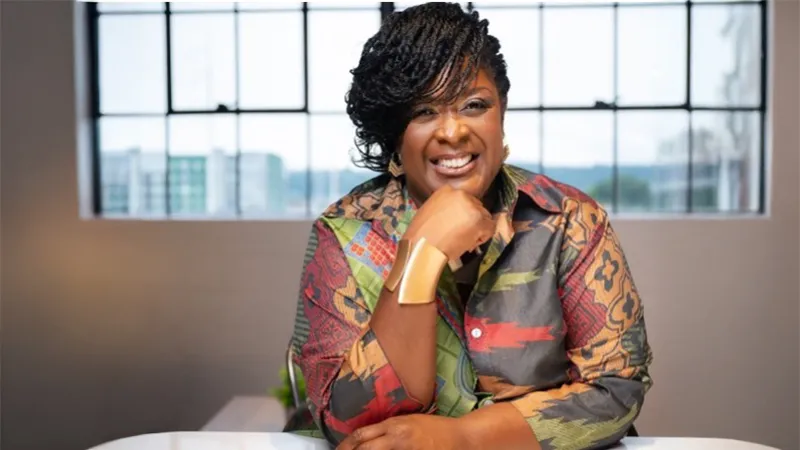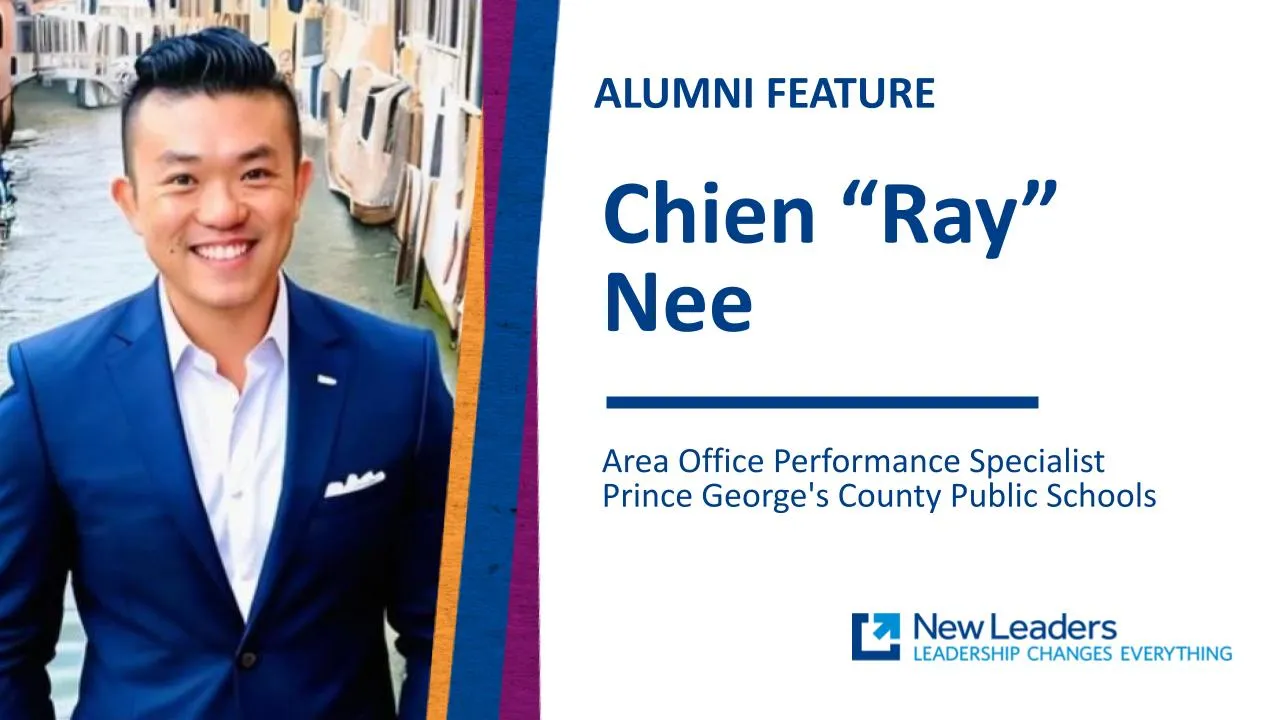Civic Leadership: Elevating Voices for Change


“How do I take the skills that I’ve learned from being a school leader and bring them to the community to make our community stronger?” reflects Jonathan Humphrey, a former principal and New Leaders alum. “I think it’s our job as leaders to make sure we build the structures to hear from people. This is how we affect change.”
Humphrey, like many New Leaders alumni, is active with Leadership for Educational Equity (LEE), a national nonprofit with whom we partner. LEE inspires and supports a network of education and civic leaders to work together to end the injustice of educational inequity. Humphrey’s participation with LEE has deepened his appreciation for being at the table when impactful education decisions are made. And at the same time, strengthened his commitment to discovering how he can bring more people to that same table so their voices can be heard too.
We sat down with Humphrey recently to learn more about how he got to where he is now and what his vision is for community and civic engagement.
What motivated you to participate in LEE?
We’re in the middle of a superintendent search here in Memphis-Shelby County Schools. What I want to see happen is that we influence that hiring process by elevating the voices of teachers, parents, students, and principals. As a principal, you can influence your immediate community. But there are so many different communities across a school system. That’s where LEE comes in.
With LEE, I’m exploring how we go about mobilizing people who don’t often have a voice. How we elevate the perspectives that people who are currently employed can't say or are afraid to say. How we present the voices and stories that are shared with us.
LEE allows us to meet with local educators, leaders, and involved parents to brainstorm ideas about how we can best support the superintendent process. For me, having the opportunity to mobilize people, to gather more people, and say, ‘Let’s hear from all of you. What are you thinking? What are the trends? What are the things that we think we can do collectively?’ I think that is where the power is.
For me, having the opportunity to mobilize people, to gather more people, and say, ‘Let’s hear from all of you. What are you thinking? What are the trends? What are the things that we think we can do collectively?’ I think that is where the power is.
If you could change something within the district, what would it be?
One of the things that I've seen in our district is that feedback does not go both ways. Feedback comes from the board down to schools. But rarely do we see feedback go from schools back to the board. Which is interesting because that means that the people that are there to support the schools hardly ever get feedback from the people that they are supporting.
When you think about it, our new superintendent will make decisions that will impact the more than 110,000 students in the district—plus the teachers, parents, paraprofessionals, and principals. That’s why we need to ask ourselves: What are we looking for? What is our number one? What do we need? What do the teachers want to see from a new superintendent? What are they craving? What do principals want? What do parents want to see happen for their children?
What we know is that when people feel heard, when they feel like you're listening to them, when their voice is valued, they stay. I want to stress this to the board: Listen to your people.
How is LEE shaping you and changing your leadership?
LEE has pushed my thinking a lot. As a school leader, I would have 70-80 people on staff that I was responsible for developing, listening to and making sure that we were all moving toward the same vision. But learning how to mobilize people effectively makes me think on a bigger scale. What is the vision? What are we trying to accomplish? How do we get the message out to people so they can be a part of it?
LEE has also changed my thinking around running for a school board. When you don't know the process, it sounds like a lot. But I had the chance to speak to a fellow LEE member who just won a school board seat. Hearing what she wants to accomplish made that role seem more real and more attainable.
Learning how to mobilize people effectively makes me think on a bigger scale. What is the vision? What are we trying to accomplish? How do we get the message out to people so they can be a part of it?
What drew you to New Leaders?
I taught for four years. At first, I didn’t want to stay a teacher. I thought I could be doing more. Then my instructional coach, Mrs. Gwen Ingram, challenged me to get really good at my practice. So I started paying more attention and asking for feedback: “Please come to my classroom. Tell me how I can get better.” Before my fourth year was over, I was asked to be an instructional coach.
Two years later, when an assistant principal position came open, the same thing happened. I told them, “I’m not sure I’m ready but I’ll try and see what happens.” I got the job. And then I found New Leaders and the Emerging Leaders program, later the Aspiring Principals program (now the National Aspiring Principals Fellowship). It sounded like fun but it was probably the hardest thing—and a great experience.
I remember my New Leaders coach. She would always ask me: ‘Well, what didn’t you do?’ when I was telling her how my team didn’t do this or my team didn’t do that. I used to get frustrated. And then about halfway through the year, I realized it was pointless to go back and tell her that they didn’t do what I told them to do.
Her coaching shifted my thinking around accountability. I started asking myself how I could motivate people. How I could do observations. Check-ins. My team noticed the difference. Our meetings changed. I just knew that I couldn’t keep blaming them when I was the one who was supposed to be supporting them.
What I love about leadership is the adults. We’re the ones that really shape children. A lot of leadership is coaching people around everyday things that impact how they show up in the classroom. We’re all human. We all go through things. We can’t ask someone to be a great educator if we’re not going to attend to the whole person like we attend to the whole child.
What is your advice to education leaders right now?
Listen and be clear and consistent.
Teachers want to know that what they say matters and that their principal is actively trying to eliminate the barriers that make their job hard. Part of showing care and being clear is listening to people and acting on their feedback so that they can be more effective with their students.
Every leader can be an active listener.
To learn more about Leadership for Educational Equity, visit: https://educationalequity.org/




.svg)
.svg)
.svg)
.svg)



.svg)
.svg)








